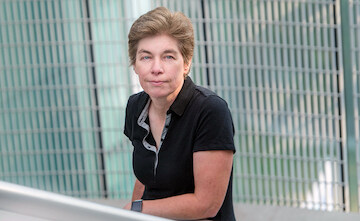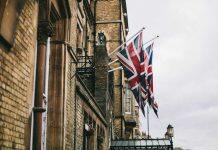The COVID-19 pandemic has highlighted challenges, exacerbated inequalities and sparked uncertainty for many. But one area of particular strength and inspiration is Canada’s research community and its response to the pandemic.
According to UBC Vice-President Research and Innovation Gail Murphy, the support of successive federal and provincial governments has allowed Canada to cultivate a world-class university research community – one that is playing a critical role in confronting COVID-19.
“As well as advancing our knowledge of the world and our place in it, this community is shaping public policy, supporting the commercialization of new innovations, and providing critical insights and solutions to the fundamental challenges of our time,” says Murphy. “In doing so, this community also develops incredible talent supporting students in their pursuit of knowledge, preparing them for their careers and aspirations, and empowering them to become engaged and active global citizens.”
Murphy says researchers spanning many disciplines and leading countless collaborative relationships with the public and private sector are critically positioned to not only inform how to treat the virus, but how we can adapt to such a profound disruption to daily life.


This work isn’t happening in silos. One of the hallmarks of research at UBC has always been faculty members’ success in working across traditionally separate fields of research. It’s an approach that is particularly true when researchers approach COVID-19. One need only look at the numbers.
Over the past months, more than 350 UBC researchers engaged in over 250 research projects and initiatives related to COVID-19, many supported by significant government funding. These projects range from efforts to understand disease transmission and develop vaccines and treatments, to addressing issues such as healthcare delivery, mental health and wellbeing, economic recovery and the social and cultural impacts of the pandemic. This work is taking place all across B.C. at UBC’s Vancouver and Kelowna campuses, health research sites throughout the province and in partnership with public and private sectors partners.
“Stepping across conventional boundaries is critical as we seek to combine resources and efforts to combat the pandemic – doing so is producing impressive, early, results,” says Murphy.
A great example is AbCellera, one of Canada’s fastest-growing biotechnology companies and a UBC spin-off that began in UBC’s Michael Smith Labs. The company has developed an antibody discovery platform that is supporting the development of treatments for the novel coronavirus. One of these treatments began clinical trials in June. The federal government announced $175.6 million to support AbCellera’s platform for COVID-19 antibody treatments and to build technology and manufacturing infrastructure for antibody therapies.
Murphy also points to research taking place in Kelowna where a federal NSERC Alliance COVID-19 grant is supporting a partnership between researchers at UBC Okanagan and a B.C. industry partner, Advanced BioCarbon 3D, to develop sustainable filtration masks from medical-grade lignin and cellulose..
In addition to these types of collaboration with the private sector, Murphy also says UBC researchers are building a roadmap for recovery. Some are developing a range of tools and innovations to help communities across the province adapt to disruption and plan for recovery. UBC economists, for example, have created a tool to measure COVID-19 risk in B.C. jobs, while UBC community planning experts are envisioning what cities will look like after the pandemic subsides.
Alongside this work, UBC researchers have also played a prominent role in the public dialogue on the virus. Through various media and platforms, UBC researchers are correcting misinformation about COVID-19 and helping the public keep informed and safe. These researchers have addressed a wide range of topics including the impacts of COVID-19 on children, on vulnerable and marginalized populations, on physical activity, on the shifting workplace, and on the progress of vaccine development.
“Great research is a collective effort that ignores the boundaries of institutions, jurisdictions, and disciplines,” she says. “In almost all their work, UBC researchers are collaborating with colleagues across a variety of institutions in B.C., Canada, and around the world. British Columbians can be proud of the province’s research community.”
That’s why Murphy says that, across so many areas, the UBC research community has stepped up and has positioned British Columbia well to not only overcome the pandemic but to recover sustainably and equitably.






































